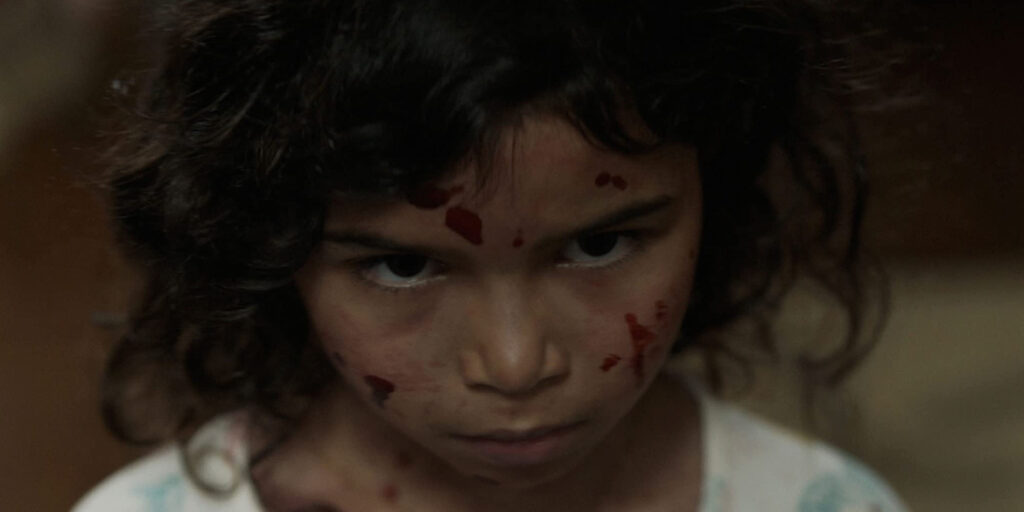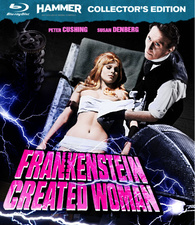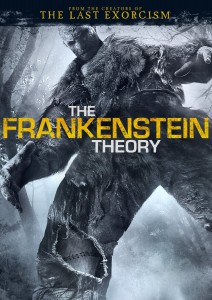Starring: Marin Ireland, Judy Reyes and Breeda Wool
Directed by: Laura Moss
Rated: NR
Running Time: 98 minutes
IFC Films
Our Score: 4 out of 5 Stars
You know you’re in for a good movie when a director is able to summarize their film without giving away too much. Before “Birth/Rebirth” began, Director Laura Moss discussed how the film was her own unique take on “Frankenstein” and how the idea has been simmering in her mind since she was a teenager. Even with that kind of spoiler in mind, one where I could expect the reanimation of a dead person, I couldn’t foresee what kind of horrors could be and would be mined in “Birth/Rebirth.”
Celie (Judy Reyes) is a natural as a prenatal nurse at the hospital she works at. She brings her motherly warmth to work to help patients and others, but that warmth will disappear in a flash. Celie’s daughter, Lila (A.J. Lister) abruptly dies, leaving Celie with so much to ponder. On the flip side, we meet a morgue tech by the name of Rose (Marin Ireland) who goes about her work with about as much warmth as the corpses she digs around in. Celie and Rose are strangers, but Lila’s death is going to bring them together in horrific ways.
The mantle of Dr. Frankenstein could be divided up between Celie and Rose, who work together after Rose reanimates Lila. Celie, despite being unable to communicate with the daughter she used to know, tries in earnest to recover what she had by focusing on nearly every aspect of Lila’s life. Rose on the other hand takes a more rudimentary, yet scientific approach to Lia as she makes notes, runs experiments and monitors the overall situation. Sometimes the roles flip as time goes on where one character assumes the role of scientist and the other as parental figure. Because the reanimated Lila remains mostly quiet throughout the duration of the film, it’s difficult to tell what’s actually going on in her head as opposed to the emotional projections by Rose and Celie.
I can’t think of a “Frankenstein” reimaging or story that heavily shifts the narrative to a female centric one. The original story could be viewed as man’s attempt to control what humanity cannot control, life and death. In some ways you could argue the original doctor was also driven by a need to create. The ability to create a human life is not possible for someone born as a man, so Dr. Frankenstein had to create human life in another form. “Birth/Rebirth” seems to explain the passion and need to control life and death as that of a woman/parent. We see how Celie and Rose work with Lila to ensure she survives, the sacrifices both of them make, but is it more about science or more about basic maternal instincts? Rose is the calculating, numbers driven and scientific to all her approaches, but the longer she spends with Celie and Lila, the more something else is taking shape beneath her expressionless face. On the flip side, Celie also realizes the lengths she’ll go to obtain what she used to have, but must also reckon with what it takes to reach that goal.
The film’s ending, which will certainly be annoying to some, leaves more questions than answers. The audience is supposed to reflect on the idea of motherhood and what parenthood in general does to us. The morals of the film are constantly being debated by the characters and by their inevitable actions. Just like the Mary Shelley classic, “Birth/Rebirth” asks us to examine creation, life and death, through our own selfishness, our own sacrifices and ultimately what we are willing to do to secure and fulfill what we see as our obligations to our creations. “Birth/Rebirth” is a monster that you’ll be thinking about long after the credits and lights go up.








